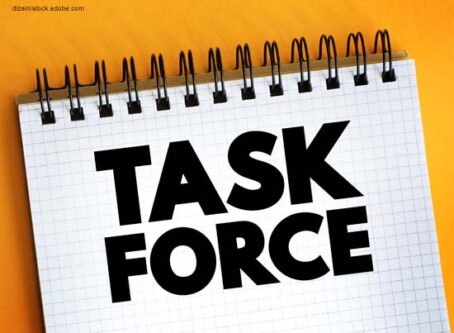Trucking industry seeks answers amid marijuana rescheduling proposal
The Department of Justice is getting the ball rolling to reschedule marijuana, a move that has trucking industry stakeholders raising their hands with a variety of questions.
On Thursday, May 16, U.S. Attorney General Merrick Garland submitted a notice of proposed rulemaking to the Federal Register that seeks to reschedule marijuana from a Schedule I drug to a Schedule III drug. Once published, the notice will kickstart a 60-day public comment period and the typically lengthy rulemaking process.
For more than half a century, marijuana has been classified as a Schedule I drug under the Controlled Substances Act. Schedule I drugs are those “with no currently accepted medical use and a high potential for abuse,” according to the U.S. Drug Enforcement Administration. That includes heroin, LSD, ecstasy and peyote, to name a few.
Schedule III drugs are substances with a moderate to low potential for physical and psychological dependence. These drugs also have an accepted medical use. Examples include ketamine, anabolic steroids, testosterone and products containing less than 90 milligrams of codeine per dosage (Tylenol with codeine).
Rescheduling marijuana neither legalizes nor decriminalizes the drug at the federal level.
However, Schedule I and II drugs are subjected to the strictest federal regulations, especially those pertaining to taxes, research and manufacturing.
Two likely effects of the rescheduling come down to taxes and research. In states where marijuana is legal, federal law prohibits dispensaries and farms from deducting most expenses since they are trafficking a Schedule I or II drug. That tax code does not apply to Schedule III drugs.
Since Schedule I drugs are deemed dangerous, research on those drugs has been tightly regulated, making it difficult to conduct studies and experiments. According to a Reuters report, rescheduling marijuana would loosen requirements that have served as barriers to research.
Beyond that, the implications of rescheduling marijuana to a Schedule III drug are in a gray area, especially for the trucking industry.
Currently, the federally regulated trucking industry must adhere to 49 CFR 40, which is the U.S. Department of Transportation’s policy on drug and alcohol testing requirements. Under those rules, labs must test for five drug classes: marijuana, cocaine, amphetamines, opioids and phencyclidine (PCP). The regulation does not specify drug schedules.
How rescheduling marijuana can affect DOT drug policies is unclear without a final rule and subsequent and explicit guidance from federal agencies.
The Owner-Operator Independent Drivers Association said in a statement that the Department of Justice’s announcement has no immediate, direct effect on drug testing programs for commercial drivers.
However, the long-term outlook is murky, with the Association saying the current proposal “may or may not eventually result in changes to DOT drug testing protocols.” In the meantime, the Association and other stakeholders likely will raise questions on several related issues.
“We anticipate there will be numerous regulatory, legislative and legal actions over the next few years that will determine if testing for DOT safety-sensitive personnel should be modified,” OOIDA President Todd Spencer said in a statement. “This will be an opportunity to examine issues such as impairment levels, impairment detection, roadside enforcement capabilities, medical benefits and driver retention, among a host of others. Undoubtedly, highway safety must be the most important factor when evaluating if changes are warranted.”
The issue of marijuana policies enforced by the Federal Motor Carrier Safety Administration was addressed by the agency’s Medical Review Board Advisory Committee in October 2022. Dr. Joe Sentef, chief medical adviser for FMCSA at the time, indicated it could take years for any changes to take place. Any changes to drug policies will require coordination between multiple agencies.
“I don’t see it happening right away because it’s going to be a very slow process, and it’s going to have to be an agreement between FMCSA, CVSA, HHS and the White House,” Dr. Sentef said. “All four would have to be on the same path for anything to change as far as marijuana is concerned.” LL
Land Line Staff Writer Ryan Witkowski contributed to this report.









